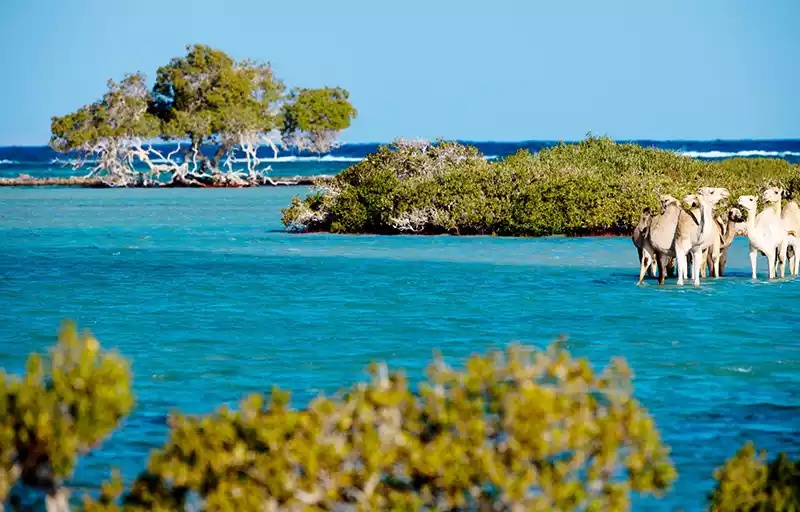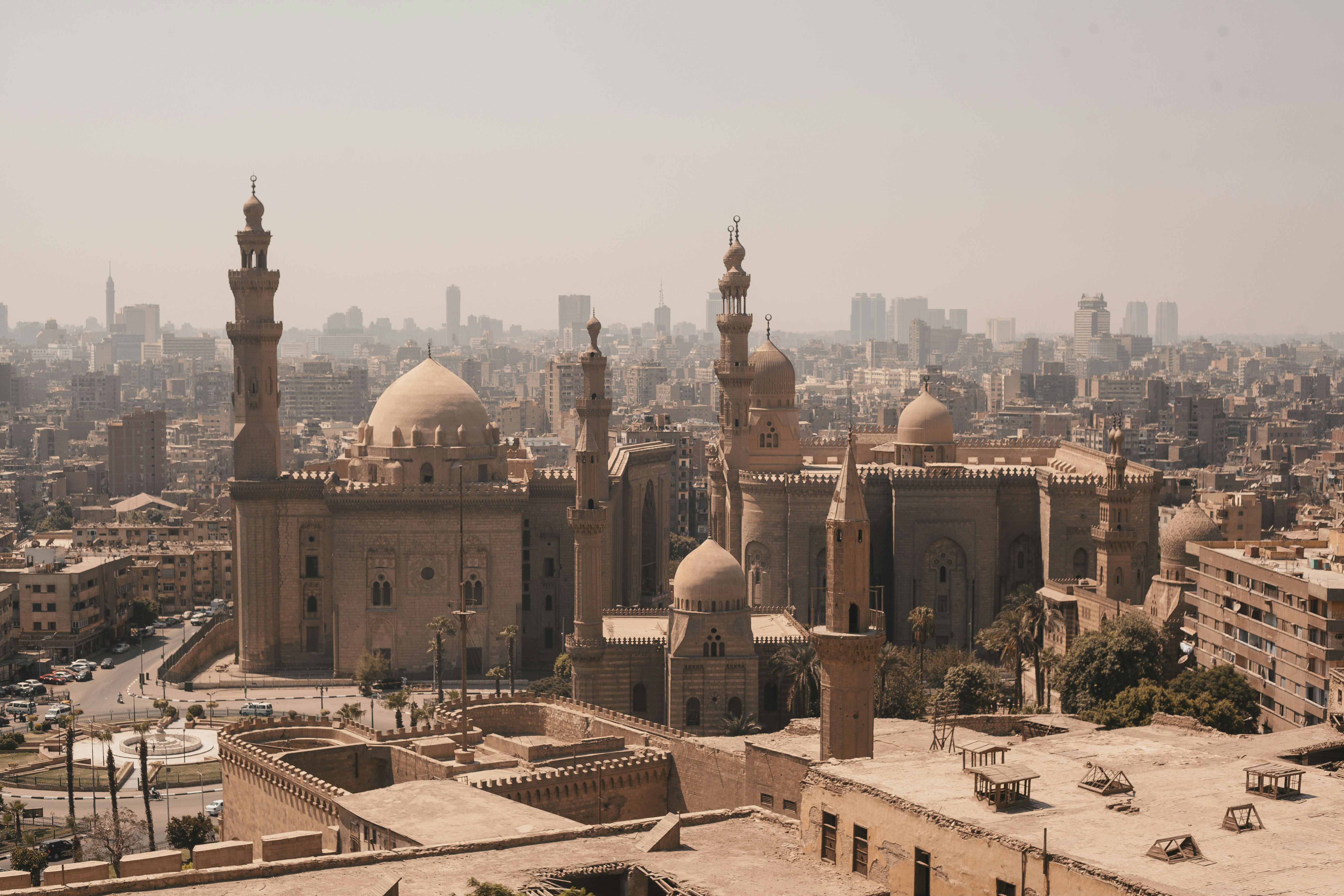Have you ever wondered how our choices as travelers might impact the environment? As we become increasingly conscious of our ecological footprints, many of us are turning to eco-tourism. One destination that’s gaining attention for its eco-conscious initiatives is Egypt’s North Coast. It’s not just about pristine beaches and historical treasures; it’s about sustainable travel and respecting nature. Let’s take a closer look at what makes Egypt’s North Coast a top destination for eco-tourists.
This image is property of images.unsplash.com.
Understanding Eco-Tourism
Eco-tourism is more than just a trend; it is a movement toward more responsible and sustainable travel. It involves experiencing natural areas while preserving the environment and benefiting local communities. By opting for eco-tourism, we support conservation efforts, promote sustainable development, and foster greater appreciation for the planet’s natural beauty.
Principles of Eco-Tourism
Here are some fundamental principles of eco-tourism that guide our travel decisions:
| Principle | Description |
|---|---|
| Minimize Impact | Ensuring that our activities create minimal damage to the environment. |
| Build Environmental and Cultural Awareness | Educating ourselves and others to understand and appreciate the surrounding natural and cultural heritage. |
| Provide Positive Experiences | Offering enriching experiences for both us as tourists and for local residents. |
| Financial Benefits for Conservation | Channeling a portion of our spending towards wildlife and nature conservation efforts. |
| Empower Local Communities | Engaging and including local communities in planning and decision-making processes. |
Egypt’s North Coast: An Overview
Stretching along the Mediterranean Sea, Egypt’s North Coast, or Sahel as it is affectionately known, is a sanctuary imbued with natural beauty, history, and cultural vibrancy. From sandy beaches to charming coastal towns, the North Coast offers various attractions that appeal to eco-conscious travelers.
Geographic Features
The North Coast boasts a mild Mediterranean climate, characterized by hot, dry summers and mild, rainy winters. The coastal stretch is home to some of the most biodiverse ecosystems in the region, including wetlands, sand dunes, and a variety of marine life.
Historical Significance
Beyond its natural allure, the North Coast is steeped in history. This area has witnessed the rise and fall of empires, making it a tapestry of ancient ruins and archaeological sites. From the remnants of ancient civilizations to the colonial-era architecture, the North Coast invites us to step back in time.
Cultural Landscape
The North Coast is also a melting pot of cultures and traditions. The local communities are known for their hospitality and rich cultural heritage, which is expressed through music, dance, and cuisine. As we explore this region, we gain insights into the local way of life and contribute to its preservation.
Eco-Friendly Attractions on the North Coast
There are numerous eco-friendly attractions to explore on Egypt’s North Coast that align with our sustainable travel values. These attractions promote conservation, respect for local traditions, and sustainable development.
Nature Reserves and Protected Areas
Several nature reserves and protected areas on the North Coast offer us the opportunity to witness Egypt’s natural beauty while contributing to conservation efforts.
El Omayed Biosphere Reserve
El Omayed Biosphere Reserve is a UNESCO-designated site, known for its unique ecosystems. The reserve is home to various plant and animal species, some of which are endemic to the region. By visiting the reserve, we support the ongoing conservation projects and research.
Zaranik Protectorate
Situated at the eastern end of Bardawil Lake, the Zaranik Protectorate is an essential stopover for migratory birds. Birdwatching enthusiasts will appreciate the diversity of bird species, while our visit helps fund conservation initiatives.
Sustainable Accommodation Options
Sustainable accommodation is a cornerstone of eco-tourism. The North Coast offers several eco-friendly lodging options that align with our values of minimizing impact and supporting local communities.
Eco-Lodges and Green Hotels
We can find several eco-lodges and green hotels on the North Coast that provide an eco-conscious alternative to traditional accommodations. These establishments often employ energy-efficient systems, use sustainable materials, and focus on waste reduction.
Examples of Sustainable Accommodation
| Hotel Name | Sustainable Practices |
|---|---|
| Green Horizon Hotel | Utilizes solar energy, incorporates rainwater harvesting, and has a zero-plastic policy. |
| Coastal Harmony Lodge | Features eco-friendly building materials, organic food sourcing, and local community engagement. |
Activities for Eco-Tourists
Engaging in eco-friendly activities helps us appreciate the region’s natural beauty while reducing our environmental impact.
Snorkeling and Scuba Diving
The Mediterranean waters are teeming with marine life, making snorkeling and scuba diving popular activities. When we choose operators that adhere to eco-friendly practices, such as no-touch policies and reef-safe sunscreens, we protect the underwater ecosystems.
Nature Walks and Hiking
Several trails along the North Coast offer scenic views and a chance to encounter local wildlife. Whether it’s a leisurely walk through sand dunes or a more strenuous hike, we enjoy the beauty of nature without causing harm.
Supporting Local Communities
Eco-tourism isn’t only about protecting the environment; it’s also about supporting the local communities that depend on tourism for their livelihoods. Here are some ways we can positively impact local communities while traveling.
Buying Local and Handmade Goods
By purchasing local and handmade goods, we contribute to the local economy and help preserve traditional crafts and practices. Shopping at local markets for souvenirs is a meaningful way to support local artisans and take home a piece of the North Coast.
Participating in Community-Based Tourism Projects
Community-based tourism projects focus on involving local communities in tourism activities, ensuring that they benefit directly from our visits.
Examples of Community-Based Tourism Projects
| Project Name | Focus |
|---|---|
| Green Village Initiative | Supports small-scale farmers and artisans, offering experiences like organic farming tours. |
| Coastal Cultural Experience | Enables visitors to engage with local traditions, such as cooking classes and folk dance performances. |
This image is property of images.unsplash.com.
Practical Tips for Eco-Tourists
To make our trip more environmentally friendly, we should follow some practical tips. These small but significant actions can help minimize our environmental impact and support sustainable travel.
Reducing Waste
We can reduce waste by carrying reusable items, like water bottles, shopping bags, and utensils. Avoiding single-use plastics is crucial for protecting marine environments and local ecosystems.
Conserve Water and Energy
Simple habits like taking shorter showers, turning off lights, and unplugging electronics when not in use can significantly reduce our energy consumption. Many of the regions we visit may have water scarcity issues, so conserving water is equally important.
Respect Wildlife and Natural Habitats
When exploring nature reserves and protected areas, it’s vital to respect wildlife and their habitats. We should keep a safe distance from animals, stay on designated trails, and avoid disturbing natural settings.
Future Prospects of Eco-Tourism on the North Coast
The future of eco-tourism on Egypt’s North Coast looks promising as more awareness is raised and sustainable practices are adopted. Government initiatives and collaborations with international organizations are expected to enhance conservation efforts and promote eco-friendly tourism.
Government Initiatives
The Egyptian government has increasingly recognized the importance of sustainable tourism. Efforts are being made to invest in infrastructure that supports eco-tourism, such as renewable energy projects and the development of eco-parks.
International Collaborations
Collaborations with international conservation organizations provide funding, resources, and expertise necessary for preserving natural habitats and supporting local communities.
The Role of Travelers
As travelers, we can play a significant role in shaping the future of eco-tourism. By choosing eco-friendly options, spreading awareness, and advocating for sustainable practices, we contribute to a more sustainable world.
This image is property of images.unsplash.com.
Conclusion
Egypt’s North Coast is more than a picturesque destination; it is a hub of eco-conscious initiatives that invite us to explore responsibly. By adhering to eco-tourism principles, supporting local communities, and minimizing our environmental footprint, we enrich our travel experience and protect this beautiful region for future generations. So, let’s embrace the ethos of eco-tourism and make a positive impact on our journey to Egypt’s North Coast.




